Natural cosmetics from the vineyard
Organic cosmetics and fine wines combine to create a consummate symbiosis at Nikolaihof. And Martin Saahs’ dieNikolai cosmetics line is proof that superior wine is not the only product that can be made from grapes. Gently processed by hand and approved by Demeter, the world's most rigorous biodynamic certificate.The oldest winery in Austria? Nikolaihof in Mautern, Wachau of course.
More than 2000 years ago, the Romans were using the Danube River region for winegrowing, pressing fine wines in Roman wine cellars which are still around today. The remains of their ancient walls can still be seen throughout the area. In 1894, the Saahs family acquired the estate, ushering in a new era. And just 77 years later, Nikolaus and Christine Saahs embarked on biodynamic farming, which Nikolaus Saahs Jr. has managed to maintain and expand since 2005. His brother Martin, on the other hand, proved to be more of a globetrotter.
"There are four of us in all: two brothers and two sisters. It was clear from the beginning that the eldest, Nikolaus, would take over the winery," Martin relates. He himself ventured out into the wide world after finishing high school, stayed in China for a time, worked in India, and staged international presentations for Nikolaihof, yet he found himself missing something. "The longer I was away, and the more I saw of the world, the more I grew to appreciate just how beautiful it is at home after all" After more than ten years as a world traveller, Martin realized that it was time to return home. But was there enough room at Nikolaihof for two brothers? "We sat down at a table and asked ourselves what opportunities, what untapped raw materials there still remained. After much reflection, it eventually became clear which path we needed to take. Knowing that the grape is nature's richest source of antioxidants, I took the plunge and, with a long-time friend, established the first biodynamic cosmetic brand ever certified under the Demeter guidelines."
"The longer I was away, and the more I saw of the world, the more I grew to appreciate just how beautiful it is at home after all"
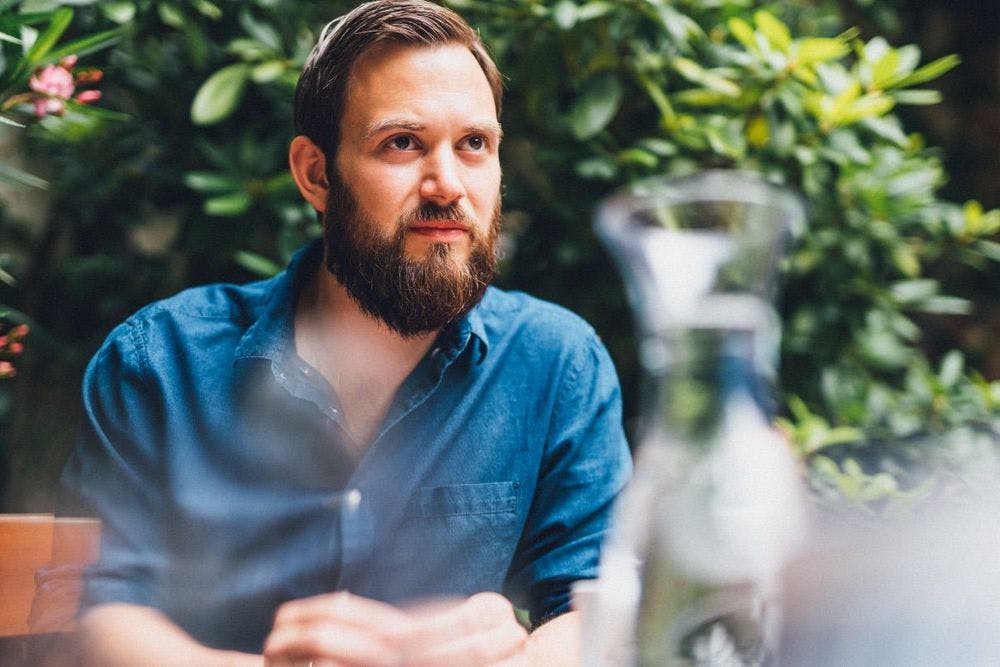
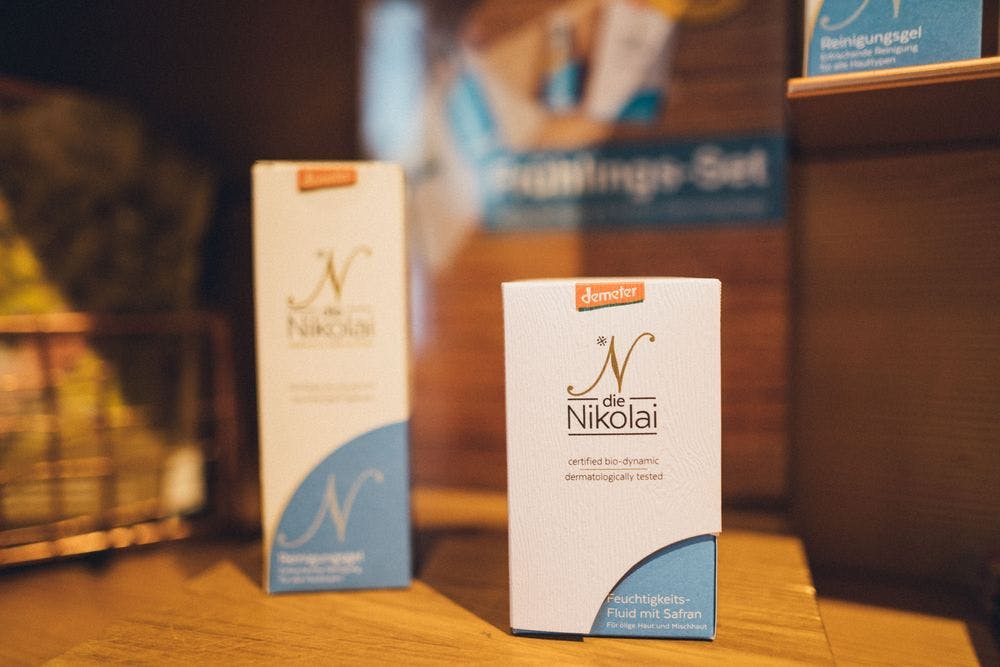
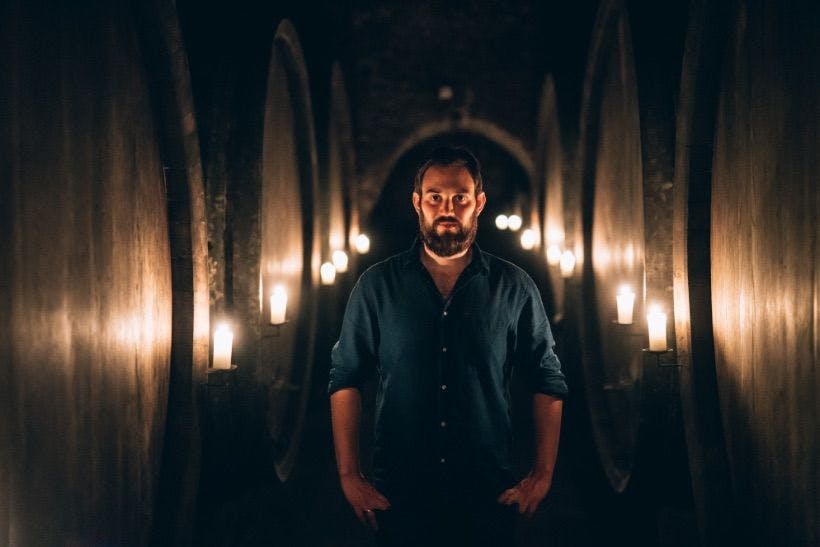
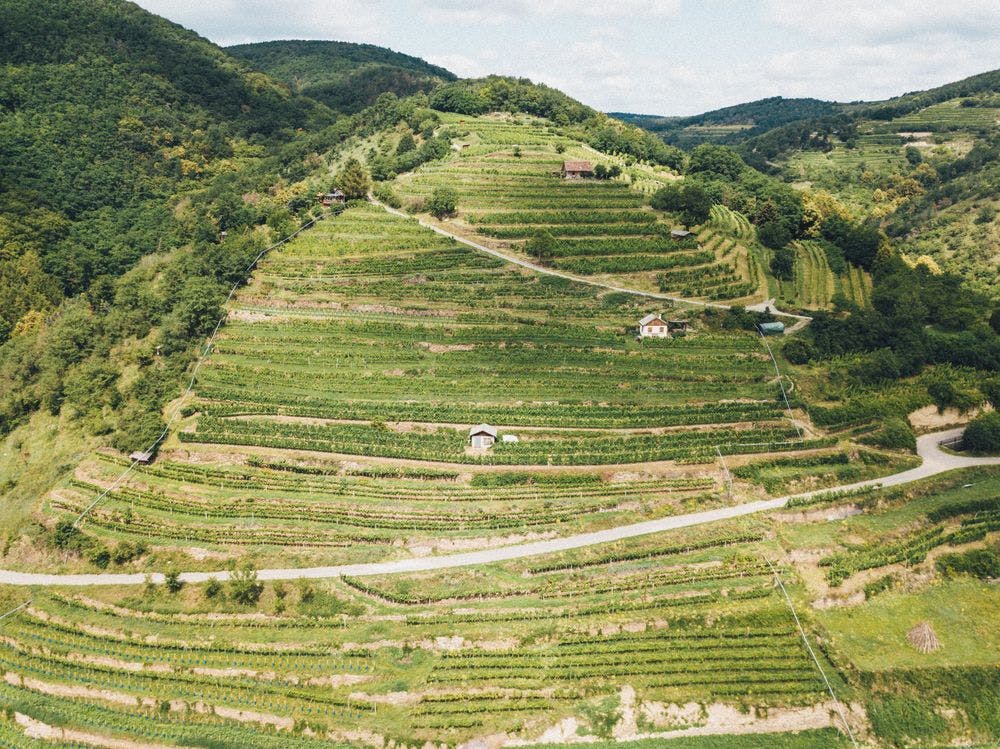
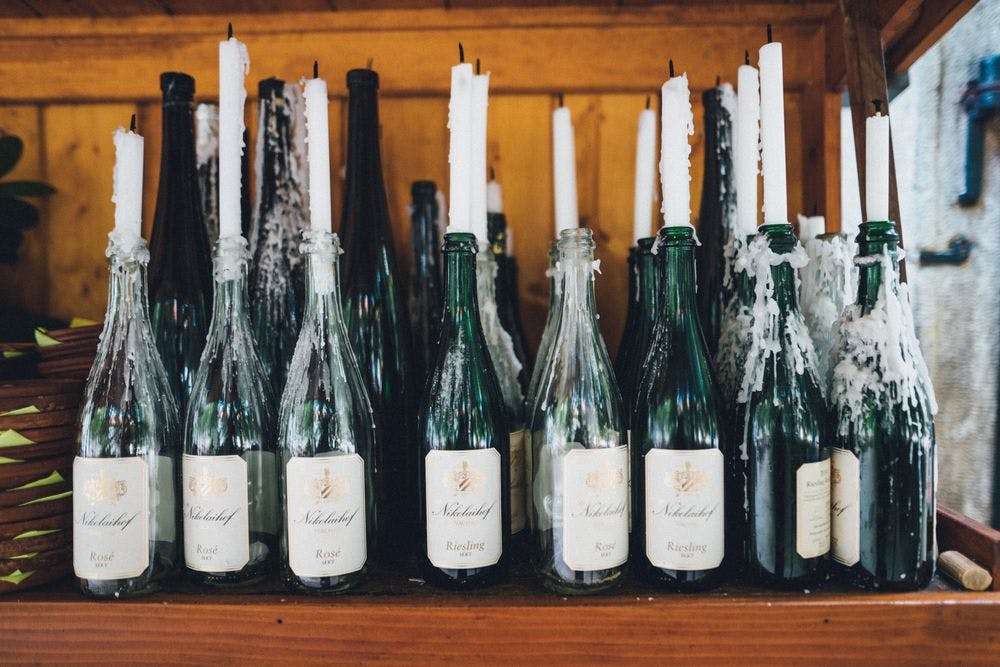
"Not using artificial fertilizers, fungicides, herbicides etc. aren’t the only things that matter, it's more about allowing nature to follow its own cycle"
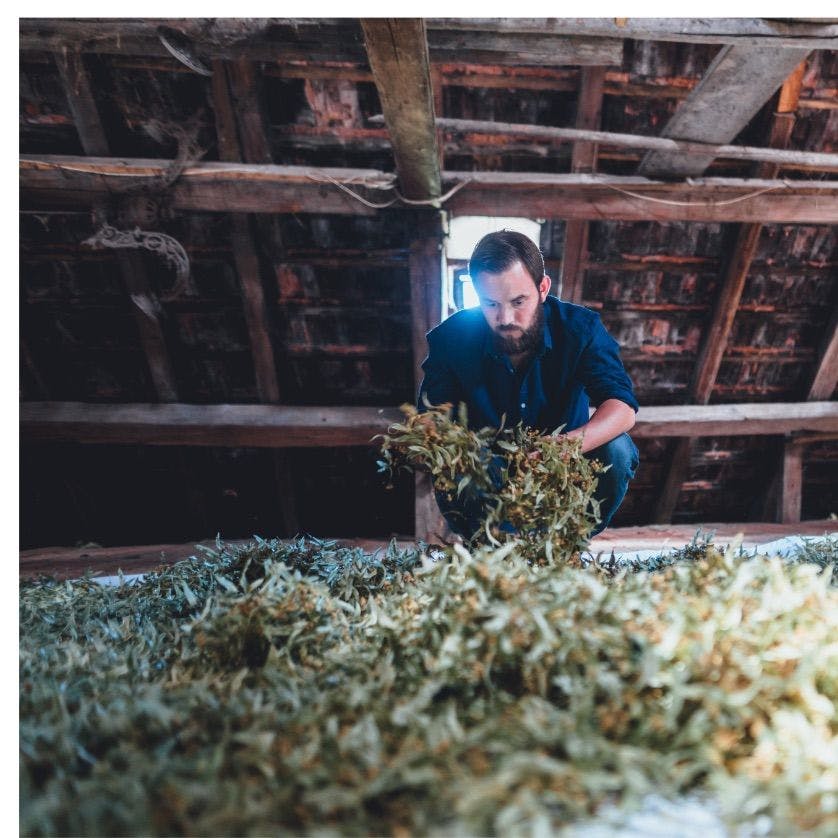
Demeter members work according to rigorous organic farming standards that apply worldwide. "Not using artificial fertilizers, fungicides, herbicides etc. aren’t the only things that matter, it's more about allowing nature to follow its own cycle" Martin explains. There is an obvious reason for Demeter certification: "The industrialization of the organic farming sector is leading to a demand for alternatives, as consumers are noticing that almost every product is now labelled 'organic' and scepticism is growing. The Demeter seal gives the customer the assurance that they are buying an honest product of the highest quality available."
Breaking into cosmetics
Once the cornerstone of the cosmetics division had been laid in 2014, the first experiments soon followed: "It was a long journey, and we wanted to use products originating exclusively from our own farm – no exotic ingredients, no palm oil, and no shea butter." After two years of hard work, they managed to launch the world's first cosmetics brand certified in accordance with Demeter guidelines. What sounds simple enough on paper turned out to be slightly more daunting in practice: "Our first goal was to launch a facial care line, but we didn't know who was going to produce it for us, how we were going to process the raw materials, how we were going to make the packaging, what it was going to be called, or whether we would even be allowed to make and sell it. It was an exhilarating phase, and a bit of an uphill road. Finding suppliers was also a challenge at first, with some people having a laugh at us, but in the end we managed to connect with some terrific partners."
Two years later, dieNikolai cosmetics was launched. All of their products contain premium Demeter grapeseed oil blended with natural ingredients such as saffron, all grown on the estate's own vineyards. And even if the first batch of face care products was a little too liquid, they continued to work hard to get the mixture just right. Now their efforts are bearing fruit: "The products have met with an amazing response, and we launch a new one every few months." Product demos, such as at Alexander Ehrmanns Saint Charles Pharmacy in Vienna, have been a roaring success: "Just having the privilege of selling our products there is a major win for us." Facial cleansing and care, biodynamic serums, lip balms, hand lotions and more – the product range is broad, while the list of ingredients is small: "We try to use only a limited number of raw materials."
But what ingredients does the skincare series contain exactly? "We recover grape seeds from the marc that remains after pressing the grapes, which we dry and use to make grapeseed oil, we extract elderberry oil from elderberries, and we also harvest lime blossoms and use the grape skins." Of particular interest is grapevine sap, a natural product that has been all but untapped until now. "In spring, when the vine first flushes, sap drips out at the end where it has been pruned, and the cut subsequently seals itself with resin. In fact, Hildegard von Bingen, considered by many to be the founder of natural history in Central Europe once described this ‘grapevine water’ as one of the most precious raw materials that that nature has given us. We used it to develop an eye serum." The extraction process, however, is quite an operation: hundreds of wine bottles are hung in the vineyards in order to gather just a few litres of sap. If truth be told, harvesting any of these special ingredients is no walk in the park: there is just a few hours’ time to harvest lime blossoms, and even with grape seeds, time is of the essence, as the fresh marc has to be taken to the oil mill on a daily basis because as soon as it starts to oxidize, the precious raw material becomes worthless. The last harvest on the calendar is saffron: "We have a saffron field with around 10,000 crocuses, which are also the first in the world to be certified in accordance with Demeter standards." In the end, the most important thing is to be able to stand behind your product.
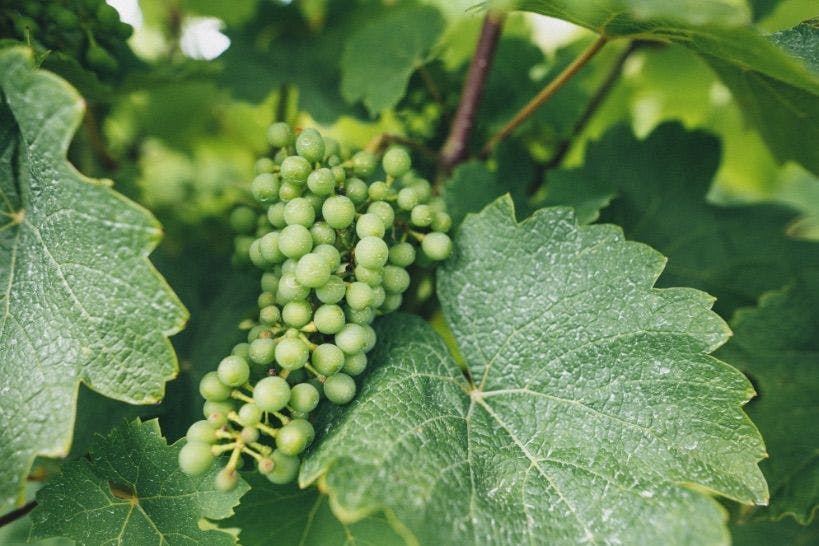
A bottle of wine goes round the world
A combination of staying true to yourself and realizing long-held dreams, along with the desire to produce only the best for his customers plus a healthy dose of stubbornness has ensured that the fine wines from Nikolaihof are now enjoying international success. "We've been ridiculed for a long time for cellaring our wines in wooden barrels for ages, and always dismissed as a bit 'off our rockers', as it were. But when, after 17 years in the barrel, our vintage 1995 dry Riesling became the first Austrian wine, and in fact the first dry Riesling in the world to be awarded 100 points by the American wine critic Robert Parker, the approach of my parents and brother was vindicated. All ratings aside, however, the true measure of a good wine is whether or not you enjoy drinking it. Nevertheless, this gave us some well-deserved recognition for decades of painstaking work and, all the more so because it was an incredible moment for my parents.”
"Here at Nikolaihof, everyone pitches in to help when it counts. Whether it's the grape harvest in the fall, working in the hotel, or harvesting raw materials for the cosmetics line. We are all one family, and yet everyone has found his or her individual role. Tradition and history are held in high esteem. For example, this is reflected in the fact that once a year grapes are still pressed using a 350-year-old wine press. And even if it sometimes takes up to twelve hours to press 10 tons of grapes, people still value cultural heritage and knowledge that’s been handed down over the generations. There is certainly never a shortage of work here at Nikolaihof. That's why we simply schedule fixed time off, inform our associates and customers, and shut the office door for as long as two weeks at a time. Just so that we can have the pleasure of spending time with friends and family in the vineyard on a beautiful summer's day, of raising a glass without a care in the world, of savouring this moment and the gratitude that accompanies it, of having the chance to live out this dream.”
Nikolaihof in Mautern is not only famous for its Demeter-certified cosmetics and its fine wines. Christine Saahs, owner and author, has been honoured with the Gourmand World Cookbook Award for the best regional cookbook in the world. Her lovingly prepared dishes can be enjoyed right in Nikolaihof's own wine tavern. And for those who'd like to treat themselves to some time out in the Wachau: Elisabeth Samek, also a daughter of the house, runs the ad vineas, a sophisticated small hotel.
dieNikolai on facebook dieNikolai on instagram
Translated by: Theodore Snydal